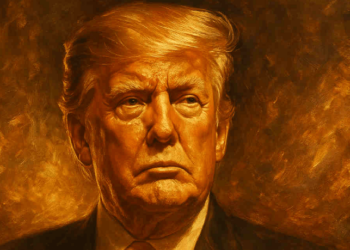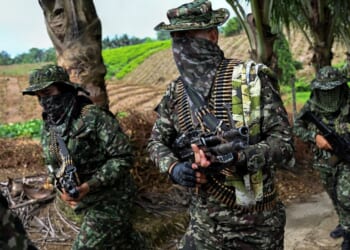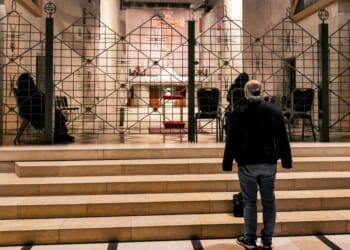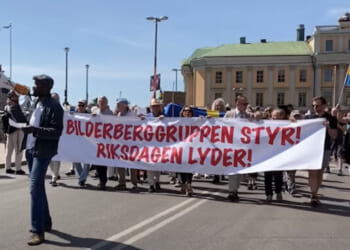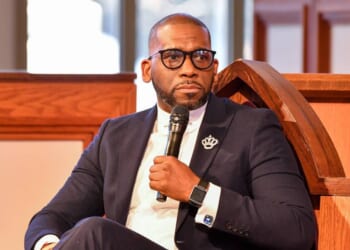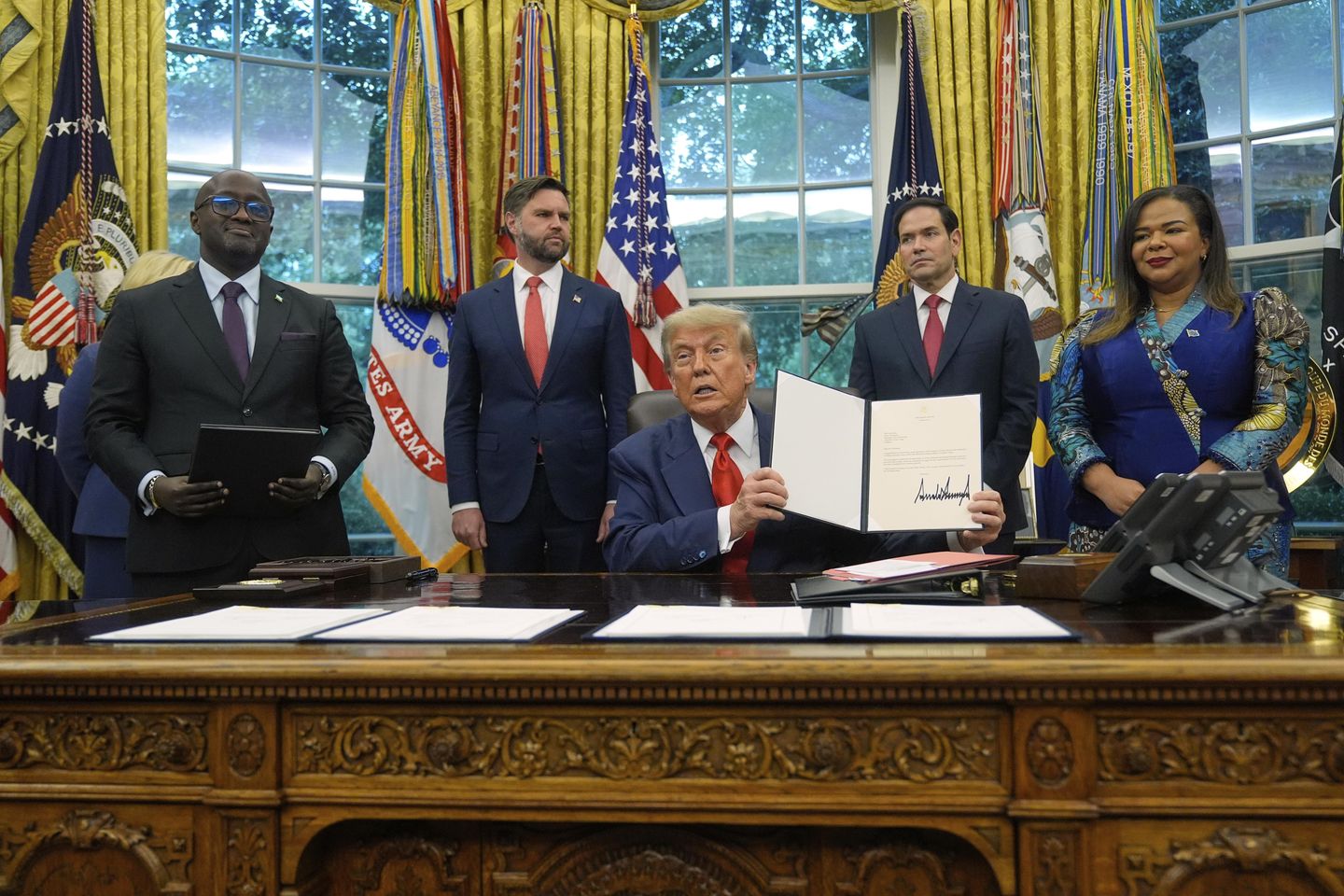
President Trump celebrated the signing of a historic peace deal between the Democratic Republic of Congo and Rwanda, hopefully leading to an end to the decades-long conflict.
The deal, brokered by the United States and Qatar, helps end the 30 years of fighting in eastern Congo that has seen some 6 million people killed. The deal was signed ahead of the Oval Office celebration with Secretary of State Marco Rubio as a witness.
“Today, the violence and destruction comes to an end and the entire region begins a new chapter of hope and opportunity, harmony and prosperity and peace,” Mr. Trump said Friday in the Oval Office.
He was joined by Rwandan Foreign Minister Olivier Nduhungirehe, Congo Foreign Minister Therese Kayikwamba Wagner, Vice President J.D. Vance and Mr. Rubio.
“It’s been a long time waiting,” he said.
The president said his administration will continue to work with all of the parties involved with the deal to ensure the agreements are followed.
There will be “big penalties …f inancial and otherwise” if the deal is violated, he said.
Ms. Kayikwamba Wagner urged Mr. Trump to “stay on board” to make sure the peace deal comes to fruition.
“We need the United States to make sure that this agreement holds and that you hold us accountable,” she said.
Earlier, Mr. Trump admitted he’s no expert on the conflict in central Africa, but he called it one of the “worst wars that anyone’s ever seen.”
“I was able to get them together and sell it, and not only that, we’re getting for the United States a lot of the mineral rights from the Congo,” he said at a press conference before the peace-deal celebration in the Oval Office.
At a signing ceremony ahead of the White House event, Mr. Rubio called the peace deal “an important moment after 30 years of war.”
“Those who have suffered the most are watching,” Ms. Kayikwamba Wagner said at the signing. “They are expecting this agreement to be respected and we cannot fail them.”
Mr. Nduhungirehe said there may still be a long road ahead before there is peace in the region.
“We must acknowledge that there is a great deal of uncertainty in our region and beyond, because many previous agreements have not been implemented, and there is no doubt that the road ahead will not be easy,” the foreign minister said.
“But with the continued support of the United States and other partners, we believe that a turning point has been reached,” he said.
The State Department announced in a memo on June 18 that teams from the Congo and Rwanda had agreed to “provisions on respect for territorial integrity and a prohibition of hostilities” after spending three days in April hammering out the conditions.
It also called for the disarmament and “conditional integration” of non-state armed groups, along with the return of refugees and an economic integration framework for the region.
“Both the DRC and Rwanda expressed their appreciation for the valuable contributions and joint efforts of the United States and Qatar as partners in advancing a peaceful resolution,” a joint statement said.
While the two countries are not formally at war, Congo has for decades fought with over 100 armed groups. The most powerful one, M23, is said to be backed by Rwanda, but the country denies it. The conflict is fueled by ethnic tensions between Hutu and Tutsi-aligned groups and competition for resources in the mineral-rich area.
The conflict escalated earlier this year when the rebel group captured key cities Goma and Bukavu in eastern Congo.
Fighting increased in Congo in the mid to late 1990s, stemming from ethnic-group border spillover from the 1994 Rwandan genocide. Despite peace deals being signed, the fighting and unrest didn’t stop. Instead, it lay dormant for years before popping back up.
This peace deal has been overshadowed by conflicts between Russia and Ukraine and in the Middle East, but it’s no less monumental. The end of this conflict could mean the end of the deadliest world conflict since World War II.
Mr. Trump signed letters to the leaders of Rwanda and Congo congratulating and inviting them to the White House for the finalization of peace terms. He handed out ceremonial presidential challenge coins to the foreign ministers and even gave one to a White House reporter from Africa who shared what she had been hearing in Africa at the start of the event.













